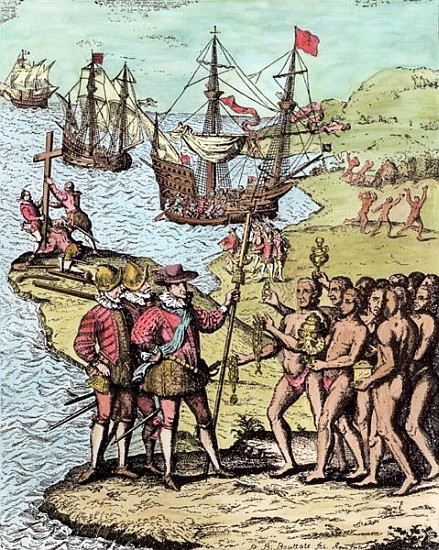
This is the third in a series of articles to reflect on Christian Nationalism. For more on this topic, you can read my book, Go and Do Likewise: Following Jesus into Our Common Humanity.
If you’re Christian: Take some time to think about your own faith tradition. How does it invite you to respect, build relationships, and partner with people from other wisdom traditions and cultures?
If you’re part of another wisdom tradition: Consider the complex and intense conversation happening within Christianity right now.
Within 100 years of Jesus’ life, Christianity lost touch with the culture and situation of Jesus in Roman-occupied Israel, as well as with the Hebrew teachings his mother passed on to him.
Leaders increasingly oriented themselves toward leadership within the Roman Empire. The Christian scriptures were written in Greek—not in Hebrew or Aramaic, Jesus’ likely daily languages. As this shift took hold, it became increasingly challenging to interpret the church’s writings in light of their original context.
The early church leaders did make many positive changes within the Roman Empire. They sought to lead faithfully. Yet along the way, some leaders were willing to give up too much in order to stay in favor with the powerful. The Crusades, for instance, were justified and encouraged as a faithful response of a follower of Jesus. Antisemitism grew with Christianity. This Antisemitism increasingly declared that Jewish people were not fully human because they were not Christian. This idea then was applied to Muslims in the 15th century, then applied to the inhabitants of what we now call the Americas.
The “Doctrines of Discovery” were a series of papal edicts issued in the 15th century that authorized European Christian monarchs to seize land inhabited by non-Christians. Rooted in the idea that Christians had a divine right to dominate others, these doctrines provided theological justification for colonization, forced conversions, enslavement, and the destruction of Indigenous cultures in the Americas and in Africa. They declared that Christian rulers could claim “discovered” lands and assert superiority over the original inhabitants, who were viewed as less than fully human because they were not Christian.
While few Christians today are aware of these ancient decrees, the assumptions behind them still shape much of the Western Christian imagination—and continue to fuel Christian nationalism today. Every Christian tradition that came to these shores carried with it the assumptions embedded in the Doctrines of Discovery.
The core idea that God grants favored status, rights, and even political dominion to one group over others has never been fully repudiated. Instead, it subtly persists in attitudes suggesting that Christians—especially certain kinds of Christians—are uniquely entitled to cultural, political, and social authority.
Christian nationalism draws directly on this old logic: the belief that a nation’s identity, laws, and governance should reflect a particular vision of Christianity—and that other faiths, cultures, or ways of life must be subordinate or excluded. Those not Christian, then, are not fully human and so we can set aside our morality in how we relate to them. In this way, the Doctrines of Discovery are not just artifacts of colonial history; they remain an ongoing theological wound, distorting how many American Christians relate to their neighbors, their nation, and the teachings of Jesus.
It is true, therefore, that Christian nationalism has historical precedent. It draws upon quotes from leaders, a tradition of Biblical interpretation, and the moral wound of ancestral and personal violence toward others. This makes it hard to change, as changing seems a breach of allegiance to their family and tradition. It is ever so with all of us.
Throughout history, we have often torn ourselves apart as members of the human family. Christians have frequently used the Christian tradition to support, authorize, and excuse exclusive in-grouping, dehumanization, and violence. Many Christians still do today, consciously or unconsciously. Not all of these individuals would consider themselves part of Christian nationalism—but the effects persist.
We have become dis-membered from one another. Yet I believe, as a Christian, that God is at work re-membering us—bringing us back to each other. God is influencing us to remember our shared humanity. We do not have to live in dehumanizing, murderous ways.
I have learned this not only from Christians and Christian teachings. I have learned this through friendship with fellow humans, from Atheist to Zoroastrian.
Many Christian denominations, including my own (Lutheran and Episcopalian) have repudiated the Doctrines of Discovery. On March 30, 2023, Pope Francis also repudiated them. These are important steps—but they are only steps—on the long road toward healing.
I believe that the heart of Christianity is a call to humility, relationship, and shared humanity—not domination. Reckoning with the legacy of the Doctrines of Discovery is essential if we are to move toward a Christianity that truly embodies love of neighbor and honors the full humanity of every person.
Next week, we will discuss how Christian Nationalism is contributing to a movement that is weakening democracy.
